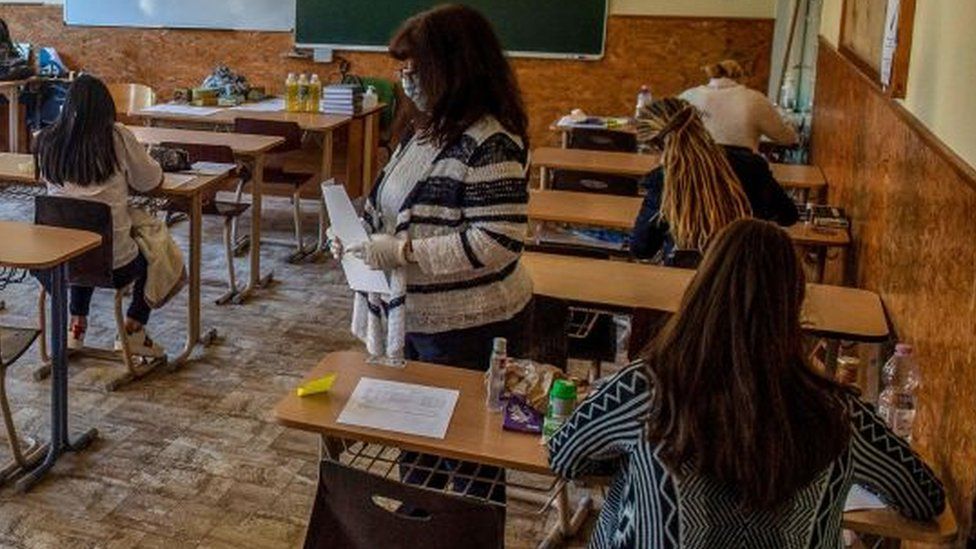ARTICLE AD BOX
 Image source, Getty Images
Image source, Getty Images
The report suggests "feminisation" of the profession may have led to more than 80% of Hungarian teachers being women (file pic)
A "pink education" phenomenon in Hungary that favours women could endanger the economy, lower birth rates and disadvantage men, a report says.
Women are over-represented in Hungarian higher education, according to parliament's economic watchdog, seen as close to Prime Minister Viktor Orban.
The authors warned that an increase in female graduates could make women less likely to marry and have children.
Mr Orban has sought to boost Hungary's flagging birth rate.
The report, by the State Audit Office, was published last month but its findings have only just been picked up by the Nepszava newspaper. Its contents have been criticised by several Hungarian politicians and human rights experts.
Over the past decade, it found that more women than men had enrolled in Hungary's universities - with the number this autumn at 54.5%. Male students were meanwhile dropping out at a higher rate, and it suggested that the feminisation of the teaching profession may have led to 82% of teachers being women.
The report found that "feminine traits" such as emotional and social maturity were favoured in Hungary's education system, which meant that sexual equality would be "considerably weakened".
The researchers warned that Hungary's economy could be put at risk if "masculine traits" were undervalued, which they listed as technical skills, risk-taking and entrepreneurship.
The report concluded that this could even impact everyday life with young people at a loss for what to do with "a frozen computer, a dripping tap, or furniture that has arrived flat-packed and there is no one to put it together".
Hungarian opposition politician Endre Toth criticised the report on Facebook: "It is time to remove your glasses from the last century." He also called the differentiation of so-called feminine and masculine traits as "total scientific absurdity".
Lydia Gall of Human Rights Watch tweeted that it was "another blow to gender equality and women's rights in Hungary".
Hungary has faced criticism for its gender inequality for some time. After a visit in 2019, Council of Europe rights commissioner Dunja Mijatovic said Hungary was backsliding in gender equality and women's rights.
Hungary recently elected its first female president, Katalin Novak, but continues to have the lowest share of female politicians in the European Union.
It is currently being sued by the European Commission for a controversial "anti-gay law" that bans the depiction of homosexuality to under-18s.
Viktor Orban, who has repeatedly clashed with the EU over rule of law issues such as press freedom and migration, has described his vision of Hungary as an "illiberal democracy"

 2 years ago
24
2 years ago
24








 English (US)
English (US)